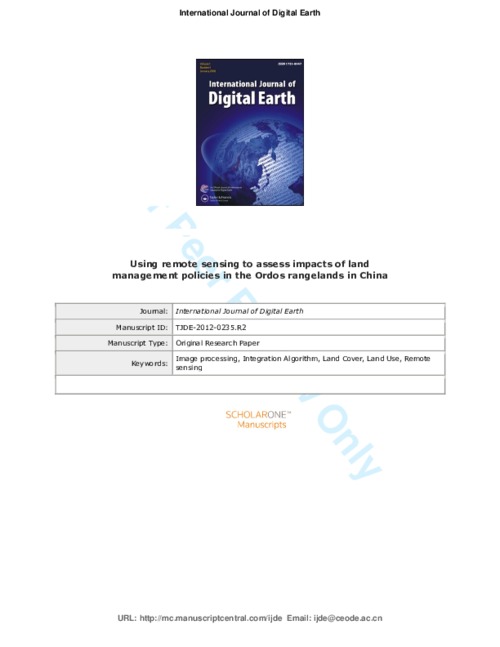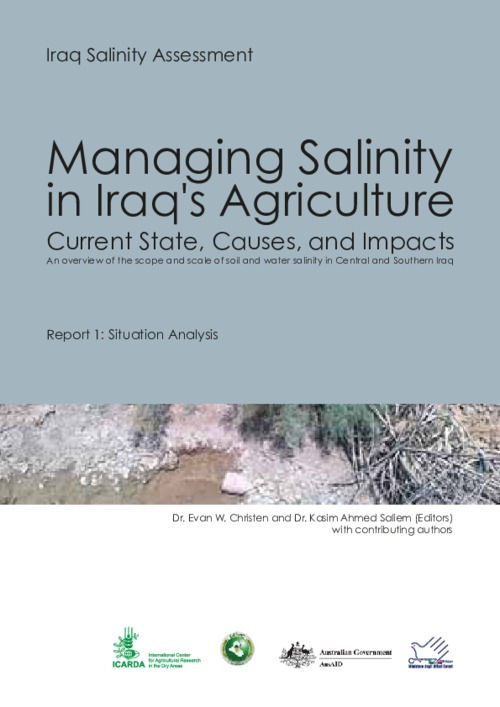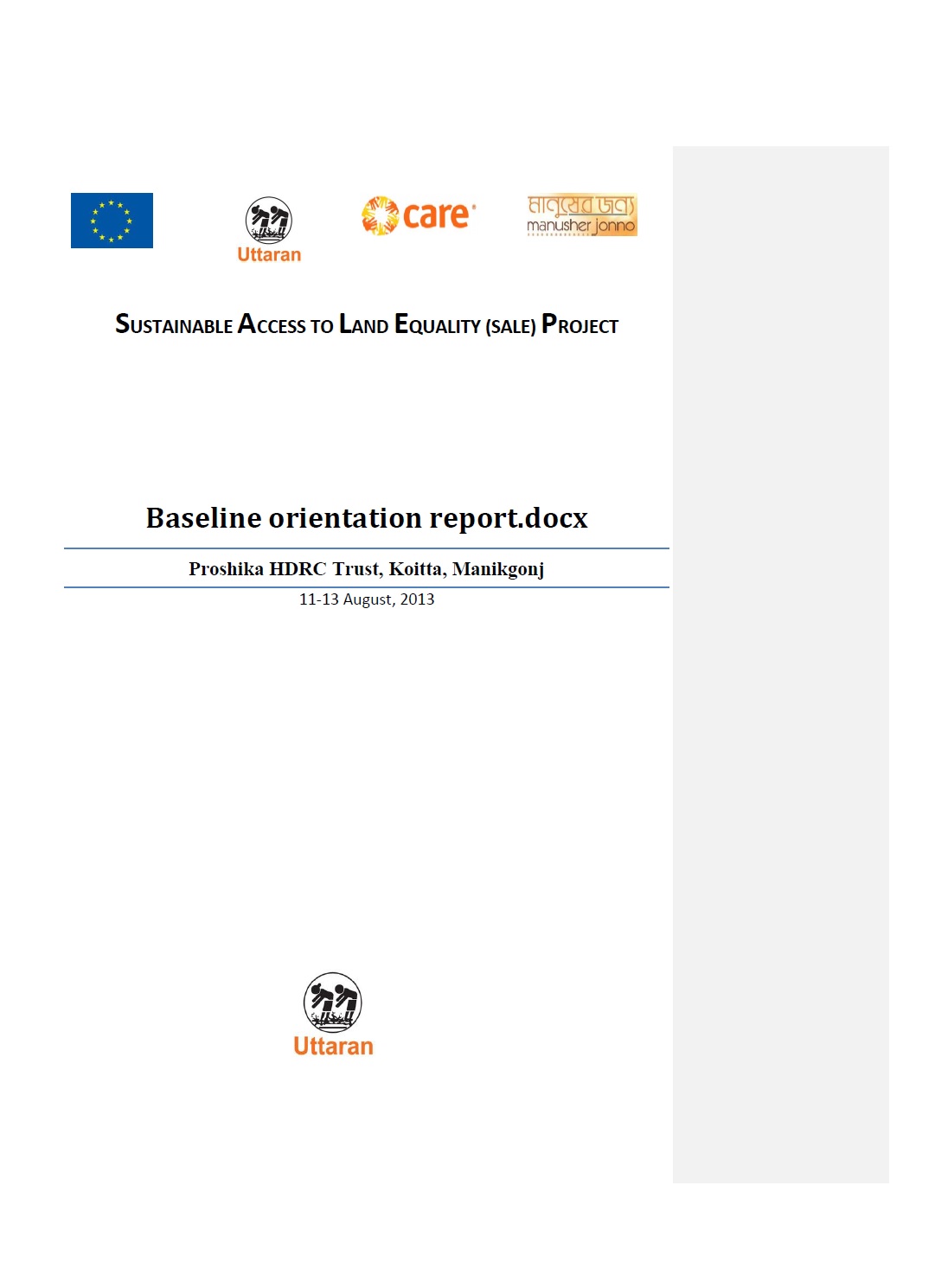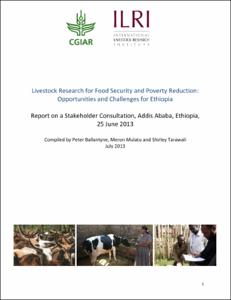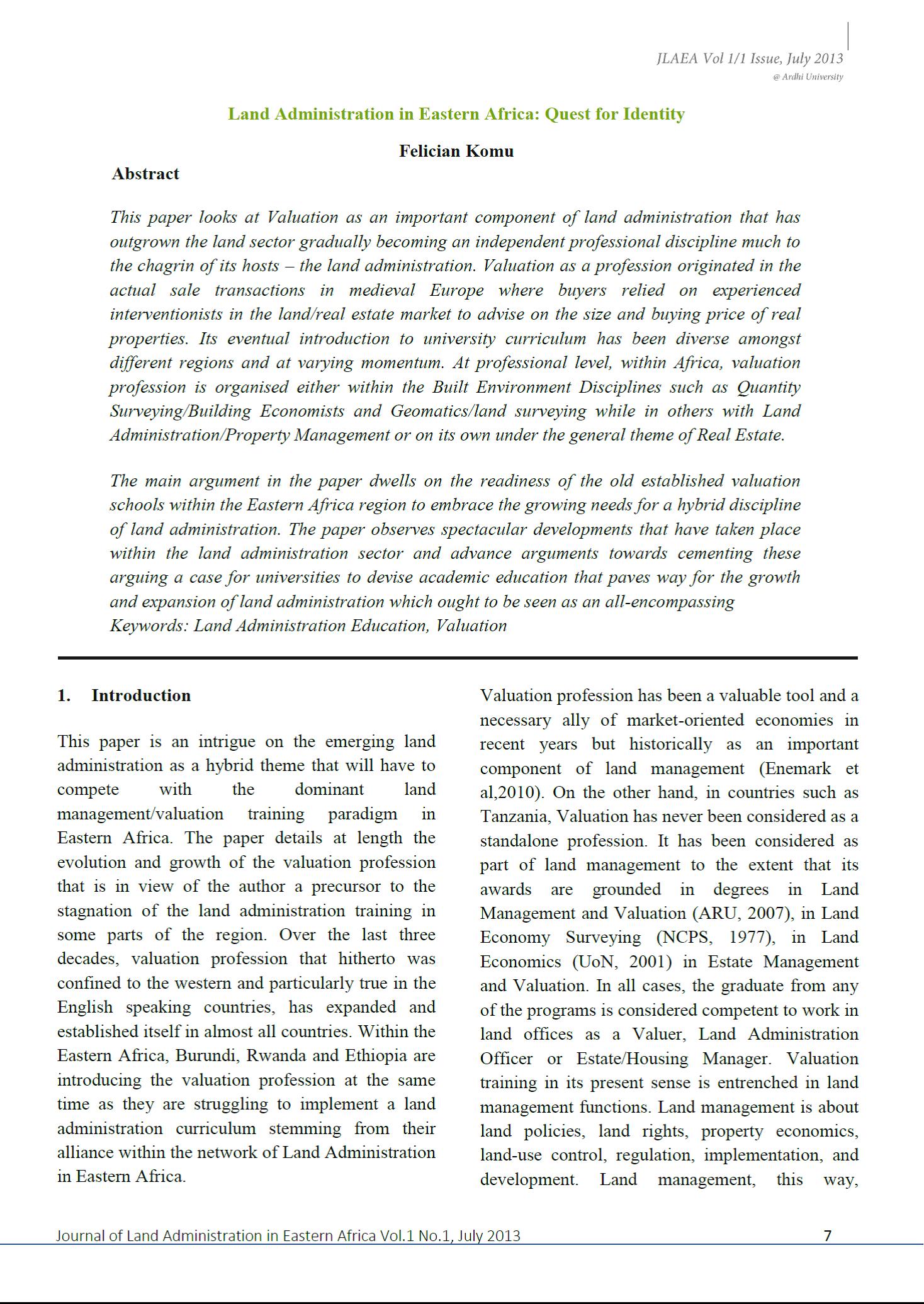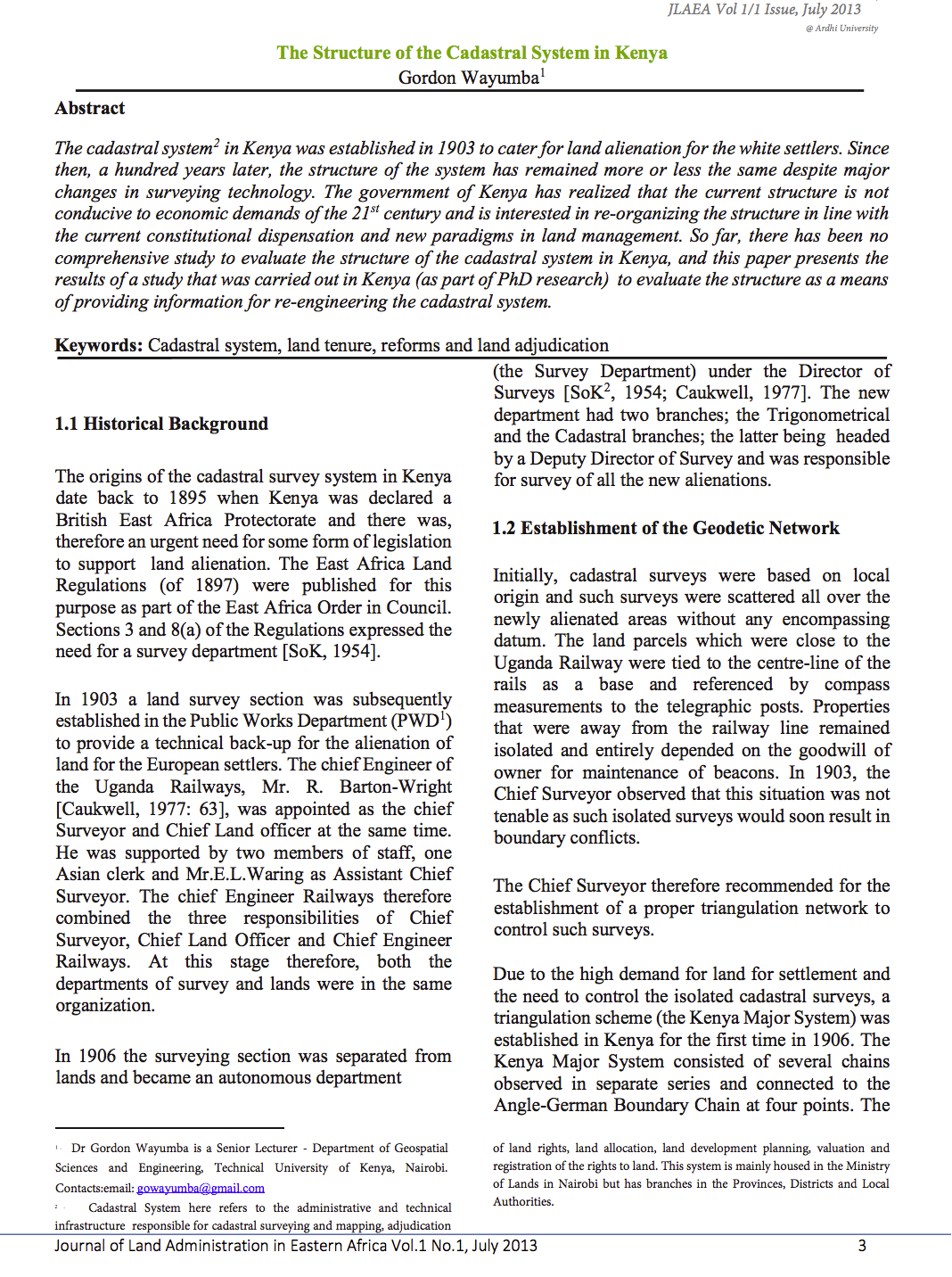Using remote sensing to assess impacts of land management policies in the Ordos rangelands in China
Implementation of land management policies influences land use and hence
causes environmental change. Taking the Ordos rangelands in China as a case
study, this paper explores the potential of remote sensing to assess in dryland
areas the impacts of policies on the environment. Thirteen Landsat images of the
period 1978 2010 were acquired and those corresponding to the starting dates of
implementation of different policies were selected for land-cover change analysis;
others were used to check the detected change and track the normalized

